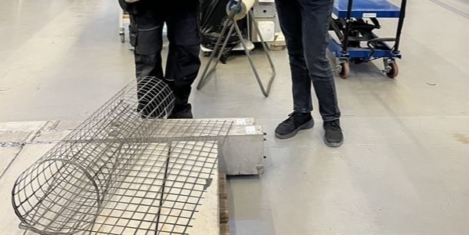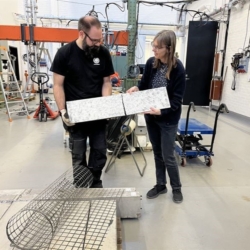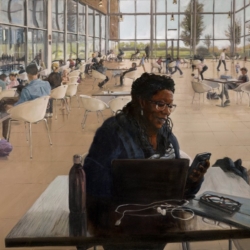To provide the best experiences, we use technologies like cookies to store and/or access device information. Consenting to these technologies will allow us to process data such as browsing behaviour or unique IDs on this site. Not consenting or withdrawing consent, may adversely affect certain features and functions.
The technical storage or access is strictly necessary for the legitimate purpose of enabling the use of a specific service explicitly requested by the subscriber or user, or for the sole purpose of carrying out the transmission of a communication over an electronic communications network.
The technical storage or access is necessary for the legitimate purpose of storing preferences that are not requested by the subscriber or user.
The technical storage or access that is used exclusively for statistical purposes.
The technical storage or access that is used exclusively for anonymous statistical purposes. Without a subpoena, voluntary compliance on the part of your Internet Service Provider, or additional records from a third party, information stored or retrieved for this purpose alone cannot usually be used to identify you.
The technical storage or access is required to create user profiles to send advertising, or to track the user on a website or across several websites for similar marketing purposes.
 A third of employees (33 percent) in the UK have experienced a toxic manager at work in the past five years, and over four in ten (41 percent) have left a job due to their dissatisfaction with management. The findings are from Corndel’s Workplace Training Report 2024, based on research conducted with 250 HR decision makers at large organisations and 1,000 UK employees. Toxic manager traits defined by the poll including micromanagement, inflexibility, intimidation, gaslighting colleagues and a deflecting accountability. (more…)
A third of employees (33 percent) in the UK have experienced a toxic manager at work in the past five years, and over four in ten (41 percent) have left a job due to their dissatisfaction with management. The findings are from Corndel’s Workplace Training Report 2024, based on research conducted with 250 HR decision makers at large organisations and 1,000 UK employees. Toxic manager traits defined by the poll including micromanagement, inflexibility, intimidation, gaslighting colleagues and a deflecting accountability. (more…)
































March 26, 2024
Menopause gift bags and monitoring toilet breaks: why are employers getting menopause support so wrong?
by Natasha Letchford • Comment, Wellbeing, Workplace